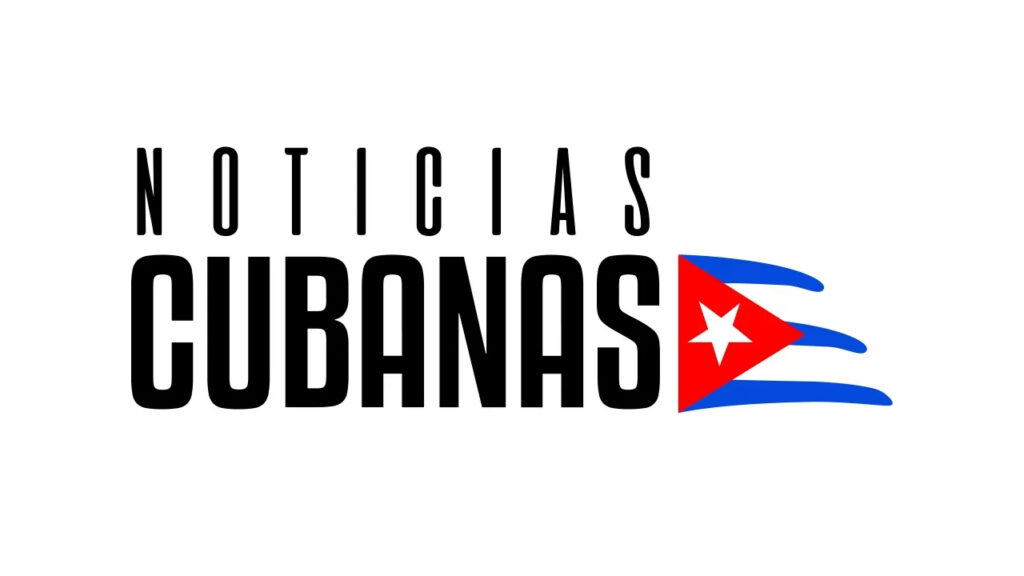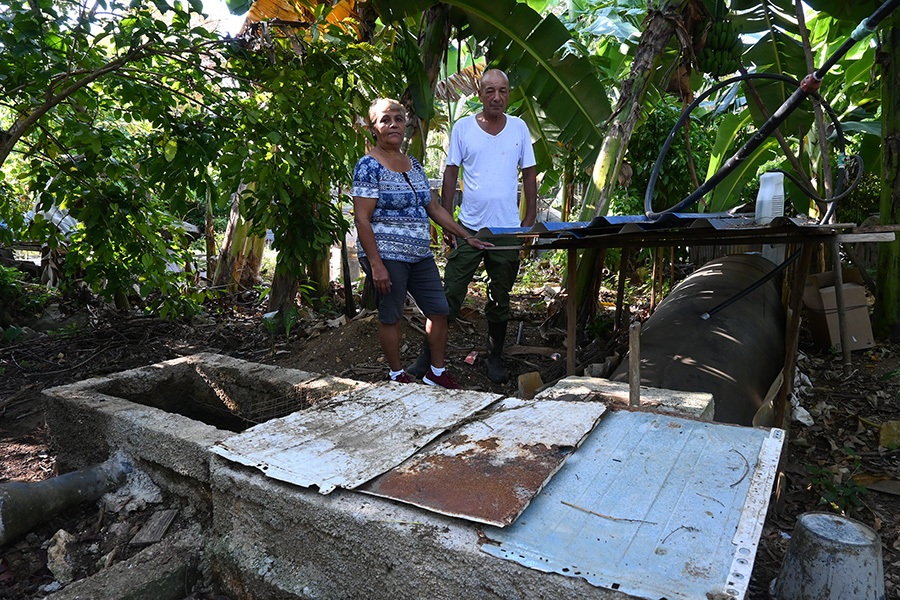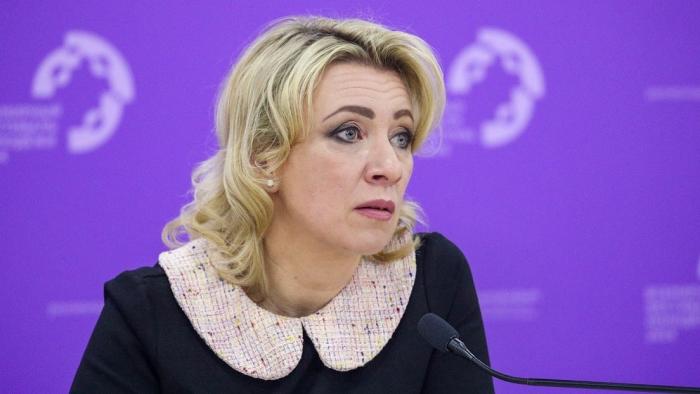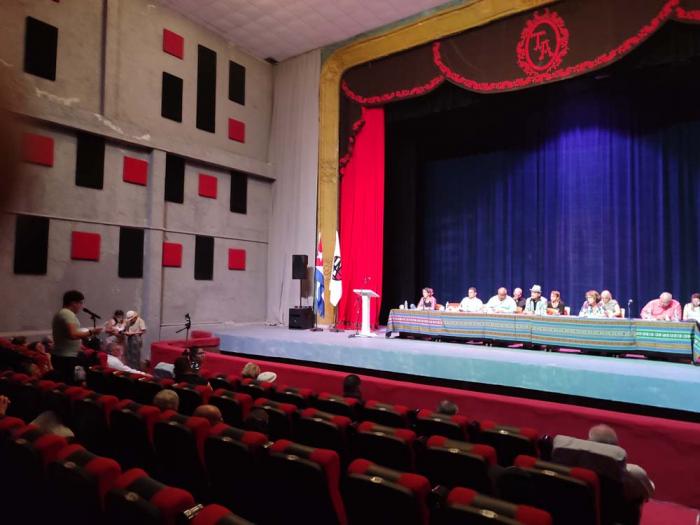HAVANA, Cuba. – In the course of six years, Gustavo worked as gardener at the Nacional Hotel in Cuba, until he was dismissed at the end of June 2020, due to the COVID-19 crisis. Just like him, another 120 workers at the emblematic hotel –mostly service personnel- were sent home without any knowledge about their ever returning to their employment or signing a new work contract.
Most of those workers were compensated as stipulated in the work contract they signed with the intermediary Cuban employment agency, but the elderly gardener did not receive even that meager compensation –generally, 500 Cuban pesos per month for three months- because he was never formally hired by the Gran Caribe S.A., the state corporation that owns the Nacional Hotel.
In reality, Gustavo and three other gardeners, plus a dozen maintenance workers, never had a fixed, legal salary; regardless, they were paid daily, weekly or monthly “under the table”, irregularly, by some official of the hotel’s Management office.
According to testimony given to CubaNet by workers and hotel administrators, the hotel’s maintenance supervisors themselves paid these workers out of their own pocket; other times, payments were made by the Management office of the hotel from a fictitious fund titled “entertainment expenses”, a practice totally outside the law. In time, this method became the norm in the Cuban tourism sector for various reasons: corruption in some cases and in others so as to avoid the regime’s bureaucracy and extortion pattern implemented through the employment agencies, the only ones with legal authority to provide a labor force for tourism on Cuban territory.
“When I was sent home, it was the work brigade boss who gave me 20 CUCs from his own pocket; the hotel gave me nothing. They weren’t obligated to pay me because officially, I was not working there,” says Gustavo, adding: “In the years that I worked, they always paid me this way, under the table (…). When there was a lot of activity, an event or something, or a hurricane had passed and there was a lot of work to do, then I got paid by the Management office (…) always in cash without signing any receipt (…). I haven’t worked again since June of last year, and I have been paid nothing. They haven’t even called me to give me a gift bag with soap, shampoo, creams and other hotel trinkets, like they used to do before. I have survived mowing the lawn in gardens here and there, working as food-line surrogate, as a messenger, but what I make from that is just for day-to-day needs. Things are very expensive.”
Twenty-nine-year-old Raidel is part of the same team of illegal workers at the Nacional Hotel. He was dismissed at the same time as Gustavo. He didn’t receive any out-of-pocket money from any workforce boss, although, to compensate him, they allowed him to take home some chorine capsules to disinfect swimming pools, a bucket of paint and several tools.
According to his testimony, he was always paid for the work he performed. At times, he went to work at the hotel on a daily basis, but there were times when weeks went by without being called, usually during low-tourism season. In his own words, he was regarded as a “jack of all trades”, for he could trim a palm tree, waterproof a roof, paint a hotel room or unclog a toilet, although his main job was to clean the swimming pools. For that job, he was paid 100 CUCs (the equivalent of US$ 100 at the time), a considerable sum in Cuba’s labor context where a professional’s monthly salary falls below that amount or the salary is paid in currency with no purchasing power in a dollarized economy.
“They would call me frequently to clean the pool, and then I would do other jobs. ‘Hey, give me a hand with this,’ and I would make another 10 pesos (CUCs) or maybe nothing, but what’s important is that they keep me in mind,” according to Raidel.
“For over a year now, I’ve been having a rough time. They called me (from the Nacional Hotel) not too long ago to do a paint job, but they wanted to pay me only 3,000 pesos (about US$ 50 at today’s informal exchange rate) for the whole job. They are abusive. On top of the fact that they fired me with no compensation and that I contracted the coronavirus and was very sick, without a buck to my name, now they call me to pay me a pittance. I said no, because they behaved badly toward me (…). At least (the boss) told me to take a few things so I could manage on my own; if it hadn’t been for that, I would have had nothing (…). Some people took used towels with them (…), to dye them and resell them; they took glasses, cutlery, also to sell them, but none of us received a penny. We were let go, and we had to go,” says Raidel, who also mentions having worked as subcontracted worker for other hotels in Havana.
Raidel continues: “I worked most of the time at the Nacional (Hotel), but I also cleaned the swimming pools at the Havana Libre and at Cohiba. I was also called twice by Palco (Palco S.A., a Council of State corporate group) to clean or paint protocol houses, foreigners’ houses; they said that (Hugo) Chavez stayed in one of those houses every time he came to Cuba (…). They paid me 100 CUCs, sometimes 200, it varied. I’ve been told that it is cheaper to pay a subcontracted individual than to pay the company responsible for such tasks. That same job can cost up to US$ 2,000. They paid me only 100 or 200 CUCs.”
The law that made the situation worse
Although Ministry of Tourism’s Resolution 14 approved in June 2020 authorized and made more flexible contracting non-state cooperatives and self-employed workers -at least for tourism entities- without intermediation by higher authorities or by the state employment agencies, it came on the heels of the wave of dismissals and was practically useless. It also allowed prerogatives only for temporary laborers –such as maintenance workers- and kept the requirement of a signed work contract between the parties, as did MINTUR’s Resolution 29 of 2015 –since repealed- where direct hiring of individuals was strictly forbidden.
“Resolution 29 prohibited (such direct hiring), as did other MINTUR decrees, but it was common practice in each and every one of tourist facilities in Cuba,” according to Orlando Arciniega, who was commercial manager at various Cuban hotels until his departure from the tourism sector in April 2020.
“In fact, since the 1990s, workers are hired directly (…), firstly, because the procedures of the employment agencies have become more and more abusive, there is corruption, the sale of jobs, even the sale of the right to particular jobs; secondly, because, if one didn’t hire workers through the employment agencies, then maintenance services had to be retained through another (state) agency which also belonged to MINTUR, and that was always much more expensive; and thirdly –and this is the most common- because the heads of Maintenance and of Management, plus another bunch of people, reach an agreement and conspire to draw those funds for other expense categories (…), for themselves, of course, and they go ahead and hire workers directly and pay them a pittance (…). A “pittance” that was actually more than a legally-hired worker would earn under contract. That’s why no one talks about it,” according to Arciniega, who provided more information about MINTUR’s Resolution 14 of 2020.

According to Arciniega, “(Resolution 14) apparently was adopted to solve a long-standing problem, allegedly to legalize what had been illegal, but, in addition to “too little, too late”, it is causing damage (…). Yes, it now allows for the possibility of issuing temporary contracts without having to go through the employment agencies, but payments made do not reconcile with payments declared: they are lower. Either one continues to pay workers “under the table” or you hire workers who will work for that money because they need to, but they are not the best qualified for the job. Also, there are people who will say ‘This is what you pay me? Well, this is the work I’ll do,’ and they sit back and do nothing.”
Cuba’s official press has published reports that indicate that, as of the adoption of Resolution 14 in 2020, in the middle of a tourism standstill, most hotel establishments decided to take advantage of the situation to complete maintenance work, make improvements and build additions.
In order to accomplish all that, they have had to hire a larger work force, which apparently could be favoring the countless “illegal workers” who have been indispensable to Cuban tourism. However, such is not the case.
A foreign director of an important hotel in Havana has told us, on condition of anonymity, that the hiring of unofficial workers far from diminishing as a result of the new law, has increased. Also, the budgets assigned to hotel maintenance during 2020 and 2021 are much higher than in the years before the pandemic. For him, the problem is that the money targeted for salaries is not reaching the workers directly, but instead, the larger portion of those funds is going into the hands of “a new chain of intermediaries.”
“(With the present resolution), the company disburses more money, but that money stays in the hands of a new chain of intermediaries,” says the director. “(Previously), in order to hire a worker, one had to pay the officer at the employment agency (…) under the table, of course, in addition to making all other established payments (…). In order to pay the worker that large sum, he or she had to be indispensable, because you never saw that money again (…). Now, for example, you can retain a team of self-employed workers, you reach an agreement, a good agreement, but most of the money approved will remain in the hands of the cooperative owner and the official who authorizes the signing of the agreement. There are more illegal workers, but there are more of them being paid lower wages (…). Now, salary payments are not agreed to on an individual basis. They are still illegal workers, but illegal workers who are hired by a cooperative, not by us directly (…). There is more money because there is more work to do, and that means greater corruption, more money that falls through the cracks,” he stated.
Ghost cooperatives
An officer of Gran Caribe S.A. who is directly involved in the hiring of external workers for maintenance and improvements at hotel facilities belonging to this state agency, agreed to speak to us, on condition of anonymity, about the new tourism industry’s practices of direct hiring of self-employed workers and of workers hired by cooperatives.
He stated: “In spite of the present financial situation, we not only have larger budgets than in previous years for maintenance and improvements, but also can use this money for freely.”
He continued: “The new norms have allowed us to hire non-state cooperatives for the work, but we know what is happening (…), there are places where budgets are approved whose numbers do not correspond to projects of such magnitude, that there are co-ops that have been paid 10 times more than they were owed, and that there is a subcontracted labor force. I am talking about co-ops that in turn hire other co-ops to fulfill their work, and co-ops who must be paid for materials stolen from state companies as if those materials were theirs (…). I will give you an example of what is happening right now at the Nacional Hotel: on paper, more than 10,000 pesos have been paid for painting one standard hotel room, only one, not the 400-plus rooms in this hotel. This, at 200 pesos per square meter. It comes out to between 4 and 6 million pesos just for painting walls, and more than 3 or 4 million for the cost of paint. There is no proof of what they pay the worker who does the painting, because the hotel no longer deals with those aspects, it’s all in the hands of the co-ops. But, we know that the salary per worker is not higher than 3,000 pesos per month, and in the painting team (brigade) there are five workers at most. Also, they are not painting all 400 rooms. At most, they will paint 100 rooms, or the ones that are rented the most. That should give you an idea of what is happening with the money.”
“When (direct hiring) was illegal, there wasn’t more corruption than now. Yes, there was corruption, but now there is more money that you can justify legally and more illegal workers who are exploited also legally,” is how Claudia Rego defines the present situation. Rego is the legal advisor of a non-state cooperative which recently signed a maintenance and construction agreement with a tourism entity. She describes this opportunity as “a miracle” due to the fact that only two or three “ghost co-ops” have cornered the business in recent months.
No co-op agrees to a good contract without paying its due (…), yes, a commission or a bribe (…). “There are some 20 hotels doing maintenance work right now in Havana, and I assure you that the majority is being done by the same two or three co-ops that have cornered the business. These are co-ops that do not exist in reality, only on paper. They are ghost co-ops that specialize in subcontracting labor. There are thousands of individuals living illegally in Havana, people who come from the provinces and who cannot find work because they have no papers, and that’s where they find an opportunity,” complains the attorney, and she adds:
“The official who approves those million-dollar budgets at the state level knows that he will get a cut from that money. He is not worried about how much you will pay workers; in fact, the least you pay them, the better for him. When we presented several proposals at various hotels, they were rejected, not for being excessive but for being trim and realistic, not bloated. Not a penny more, not a penny less. At first, they were not accepted, but in the end, they were, miraculously, and because we pretended not to see the corruption. That corruption is an attempt against the quality of work because it creates the same problems that state companies have, where workers will steal because they are not paid enough. They accept the job thinking of what they’ll be able to loot, not because of the salary. They feel that, if someone steals their salary, they will steal materials.”

Alieski and Yoandi, two young men from Santiago de Cuba and Holguin, respectively, gave us direct testimony of the present situation. Both live illegally in Havana, and have found work as masons and plumbers in a non-state “ghost” co-op doing repair work in another important hotel in Havana.
“A neighbor spoke to me about the job. He told me it was a co-op, but to go directly to the hotel and speak with the head of Maintenance and tell him that he (my neighbor) had referred me. (…) They pay me 4,000 pesos per month and a bag of toiletries. They didn’t ask me for papers, but I do have to sign a receipt for the money (…). There is no co-op, it doesn’t exist. It’s all the hotel doing it with another individual who has a co-op permit (…). I don’t know that person, my neighbor is the one who knows him, but the co-op doesn’t exist. It’s all on paper. It’s all a trick, but the hotel is the one paying me,” states Alieski.
Yoandi tells his story: “I connected through my wife. She worked in the hotel’s kitchen (…) and they were looking for masons. I went there, and started to work that very day; I didn’t have to sign any papers, although I do have to sign the payroll when I get paid (…). I make the same, 4,000 pesos and a bag of toiletries, and anything else I can get my hands on, a can of paint, some cement, food. There is no co-op, it’s all an arrangement between themselves in the hotel.”
When about half of all Cuban tourism workers were furloughed in mid-2020 due to COVID-19, the tragedy –which the media has reported- barely reflected the plight of official (legal) workers. However, nothing has been said about the neglect, the abuse and the insecurity that thousands of unofficial workers endure, in the tourism sector as well as in others. That is a reality that the State conveniently hides and silences.
The decrease of tourism workers in Cuba, from 86,000 to only 73,000 (of which 5,000 are from the non-state sector), during a decade that has seen the largest construction and hotel-expansion boom –between 2009 and 2020- has drawn the attention of some tourism researchers who see it as related to massive dismissals in the tourism sector in 2009 –justified by the start of “low season”- just when Raúl Castro rose to power and, with him, GAESA’s military elite, the most powerful corporate emporium of the Cuban economy.
A professor in the School of Tourism at the University of Havana gave us his opinion on condition of anonymity for fear of reprisals: “In 2009, around 10,000 tourism workers were fired, at the precise time that hotel capacity began to triple.”
“Of the estimated 90,000 tourism employees in 2009, less than 70,000 were still employed in 2020. That can give us an idea of just how many of them went from working legally to working illegally, and how many “indispensable jobs” became vacant and then almost immediately were filled illegally. All dismissed workers did not go to work in the private sector. That’s fiction created by the government to hide the massive dismissals. We are talking about more than 10,000 illegal (unofficial) workers, but that’s not the only problem: there are many workers that were dismissed as a result of the coronavirus, without benefit of financial assistance (…). Raúl Castro said that there had not been, nor would there be, any shock therapies, but after 2009, it’s been one (shock) after another, and unemployment figures in the tourism sector prior to 2019, are proof of it,” stated the professor.
Recibe la información de CubaNet en tu celular a través de WhatsApp. Envíanos un mensaje con la palabra “CUBA” al teléfono +1 (786) 316-2072, también puedes suscribirte a nuestro boletín electrónico dando click aquí.







